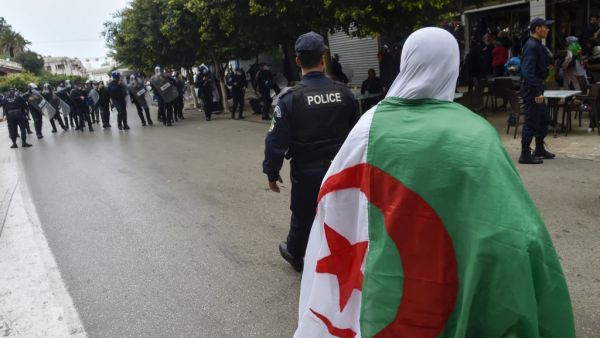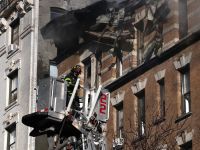Former director general of Algerian police, Major General Abdelghani Hamel, denied on Sunday all corruption charges against him on the third day of his trial and tried to politicize the case by saying some “political parties are acting against him.”
During the court session, Hamel confronted former Ministers of Health Abdel-Malik Boudiaf and Public Works Abdelghani Zaalan in their capacities as two former governors of the western Oran province.
Boudiaf and Zalaan are both accused of “exploiting their public positions" to grant land, projects and commercial offices to Hamel and his three sons, who are in prison, and his daughter and wife, who are on temporary release.
Gendarmerie investigations included evidence that showed the Hamel family benefited from the position of the father as commander of the Republican Guard and then as general director of the police. They revealed that he received substantial financial benefits in exchange for using his influence and post to keep officials in their positions or promote them to more important jobs in the state.
The Hamel family are also facing other charges, including money laundering and illicit wealth.
Algerians followed the first session of the trial on Wednesday when the judge confronted Hamel's daughter, revealing that she owns several apartments, real estate properties and projects in Algiers even though she is still a college student. Meanwhile, her unemployed mother, evidence showed, has nine shops.
Government officials from the Ministry of Housing are also being prosecuted in the same case for granting “gifts” to the Hamel family in the form of apartments and commercial stores, in the capital and Tipaza.
Meanwhile, Algiers’ court postponed till March 29 issuing the sentence in the case of journalist Soufiane Marrakchi who is on trial for violating the customs law.
Marrakchi, a Lebanese channel correspondent in Algeria, was accused of importing television equipment without paying customs. The journalist denies the allegations.
Abdullah Habboul, the journalist's lawyer, wondered if importing equipment without notifying the customs requires keeping a well-known journalist like Marrakchi in pretrial detention for six months.
He told Asharq Al-Awsat that the law provides alternatives in such cases and requires resorting to them, namely judicial reviews. He explained that the court had rejected his request to put Marrakchi on temporary release.
This article has been adapted from its original source.








